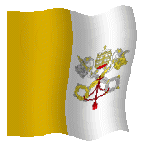There follows a quotation from Teach Yourself the History of Ireland that sheds some light on the Pope's role in the Battle of the Boyne and when it is celebrated.
from Teach Yourself the History of Ireland that sheds some light on the Pope's role in the Battle of the Boyne and when it is celebrated.
In June 1690 William himself arrived in Ireland. The forces representing the two kings met at the Battle of the Boyne on 1 July (according to the dating used by the pre-Gregorian calendar – now 12 July). William commanded an army of close to 36,000 men while James’ force numbered some 11,000 fewer.
The eventual Williamite victory at the Boyne was viewed as a defeat for Louis XIV. As such it was welcomed by his enemies all over Europe, including the Pope, Alexander VIII (1689–91). In the aftermath of the defeat James II again left for France and permanent e xile, leaving command of his forces in the hands of Patrick Sarsfield (later Earl of Lucan).
xile, leaving command of his forces in the hands of Patrick Sarsfield (later Earl of Lucan).
After overcoming dogged Jacobite resistance at Cork, Athlone, Aughrim and Limerick the Williamites were eventually victorious. The conclusion of hostilities was marked with the signing of the Treaty of Limerick in October 1691.
So then, because of the changes instituted by Pope Gregory XIII, Orangemen celebrate the Battle of the Boyne on 12th July, rather than 1st July as it was when it was fought. In addition, the victory of the Protestant William of Orange (later King William III) against the Catholic King Louis XIV was welcomed by Pope Alexander VIII (right) who was part of a Europe-wide alliance against the perceived dominance of the 'Sun King'. Apparently Alexander intoned a Te Deum in thanks at William's victory while a famous tapestry of the Battle shows the Pontiff blessing the Williamite forces!




No comments:
Post a Comment